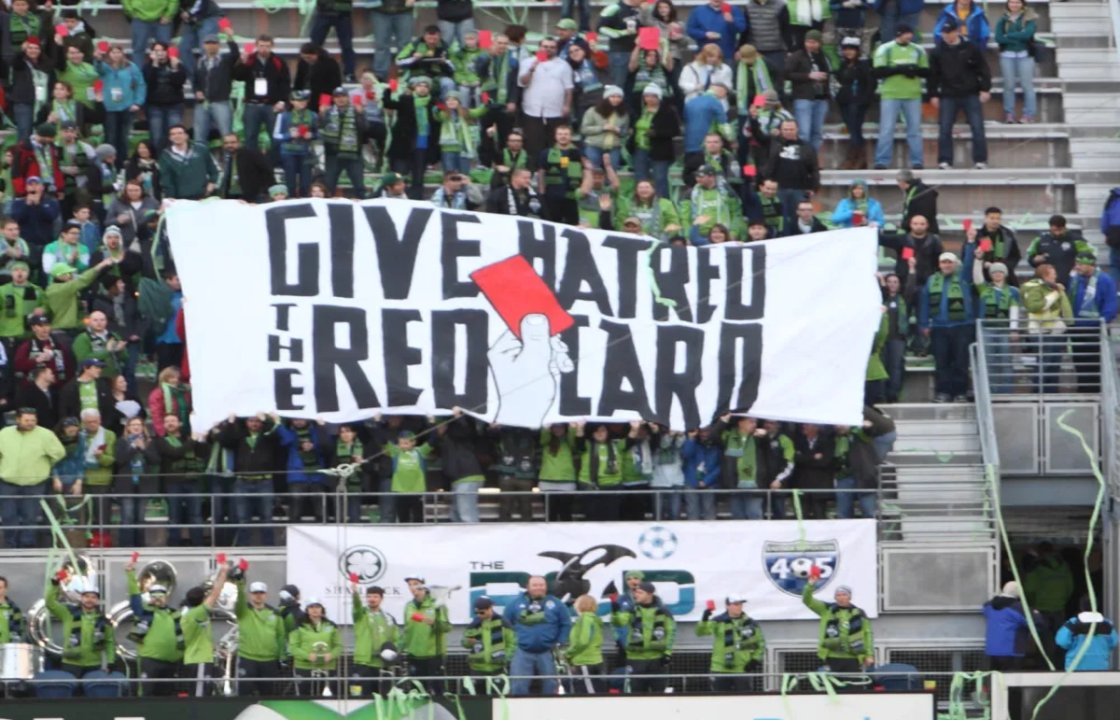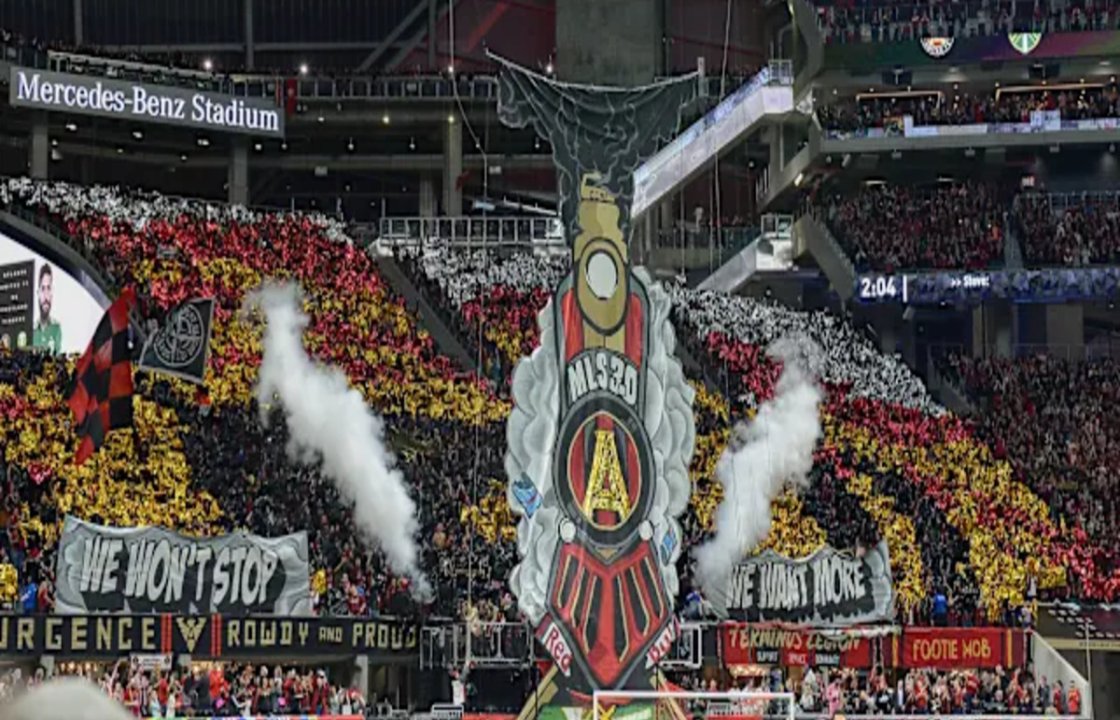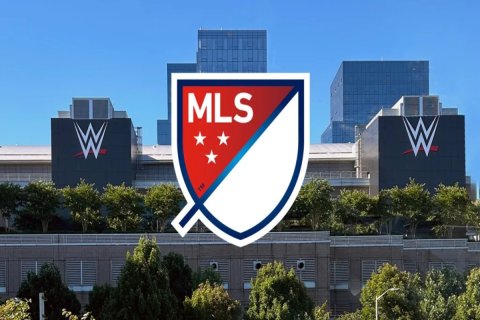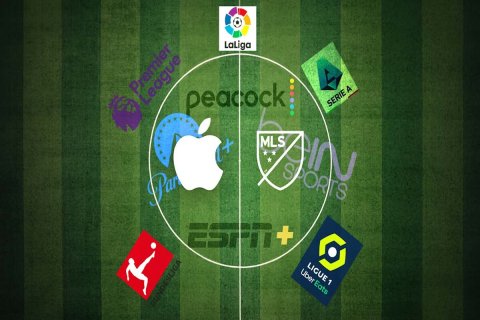Major League Soccer (MLS) has found itself at the crossroads of sports and politics, where the passion of the game clashes with the complexities of free expression.
The Roots of the Debate
Soccer has always been more than just a game—it is a global stage for identity, culture, and politics. From protests against authoritarian regimes in South America to banners of solidarity in Europe, the terraces have long served as a canvas for fans to display their convictions. When MLS attempted to enforce a stricter policy on political and controversial signage in stadiums, the reaction was immediate and polarized. Some supporters viewed it as an infringement on their right to self-expression, while others argued it was necessary to maintain neutrality and inclusivity in the league.
The controversy gained traction in 2019, when MLS banned the Iron Front symbol, a historic anti-fascist emblem, from being displayed in stadiums. For many fans, particularly organized supporter groups, the symbol represented a stand against hate and discrimination, not a partisan statement. For MLS, however, the concern was that such imagery blurred the lines between supporting a team and promoting a political agenda.
Neutrality as a Core Principle
From the league’s perspective, neutrality is key to protecting the diverse fanbase of MLS. Soccer in the United States is unique: it unites people across cultural, political, and ethnic backgrounds in a country that is often sharply divided. MLS leadership has argued that maintaining a politically neutral space ensures that stadiums remain places of enjoyment, free from polarizing debates.
Commissioner Don Garber emphasized that stadiums must remain “a safe environment for everyone”, meaning fans should never feel excluded or pressured due to political messaging. For MLS, neutrality is not about silencing expression but about guaranteeing that the sport remains accessible and welcoming to all. In theory, this principle ensures that when fans enter a stadium, they can leave the noise of politics outside and immerse themselves in the drama of the game itself.

Censorship or Protection?
The problem arises when neutrality begins to resemble censorship. For supporters, the line between political messaging and human rights advocacy is often blurred. The Iron Front controversy became emblematic of this dilemma: was MLS silencing political speech, or suppressing fans’ fight against fascism and hate?
Supporter groups in Portland, Seattle, and other cities openly protested MLS’s stance, staging silent demonstrations during matches. Chants fell silent, banners disappeared, and entire sections withheld their usual passion. For many, the policy undermined the very spirit of supporter culture, which thrives on the freedom to express collective identity.
The tension highlighted an essential contradiction: while MLS aimed to create a safe space, many fans argued that banning anti-fascist symbols did the opposite, as it tolerated intolerance by failing to stand against it. Here lies the heart of the debate: is censorship disguised as neutrality more harmful than political expression itself?
The Global Context of Politics in Soccer
To fully understand the MLS controversy, it is useful to look beyond U.S. borders. In Europe, politics has long been woven into the DNA of soccer culture. Clubs like FC St. Pauli in Germany proudly embrace their anti-fascist identity, while others, like Lazio in Italy, have been associated with far-right fan groups. FIFA itself maintains policies against political expression, but global tournaments continue to showcase political protests, from players taking the knee to fans displaying banners.
The MLS approach differs from many of these traditions, as it seeks to establish a clear boundary between sport and politics in a uniquely American context. Yet soccer’s global identity shows that this boundary is rarely clear-cut. By attempting to keep politics out, MLS may inadvertently isolate itself from the deeper cultural richness that defines the sport worldwide.
The Fan Experience at Stake
At the center of this controversy are the fans. Supporter culture is the heartbeat of soccer, and without it, the atmosphere of matches loses its soul. For organized groups, being silenced felt like a betrayal of the collaborative relationship they have built with their clubs. Supporters invest time, money, and creativity to generate unforgettable stadium experiences—tifos, chants, and banners are not simply decorations but expressions of belonging and purpose.
When MLS attempted to restrict these forms of expression, fans questioned whether the league truly valued their role in shaping the game’s culture. The standoff revealed that neutrality is not just a principle—it is a decision that directly affects the authenticity of the soccer experience.

Striking the Balance
The question moving forward is whether MLS can strike a balance between neutrality and freedom. Absolute neutrality may not be possible, especially in a sport so intertwined with identity and culture. Yet absolute openness may risk alienating parts of the fanbase or creating confrontations within stadiums.
One possible path lies in transparency and dialogue. Supporters have shown that they are willing to engage in conversations about guidelines, provided they feel respected and heard. MLS could establish clearer distinctions between political partisanship and human rights advocacy, ensuring that the fight against hate and discrimination is not lumped together with divisive political rhetoric.
Ultimately, the solution may not be to silence voices but to channel them constructively, celebrating the diversity that defines soccer. After all, the beauty of the sport lies in unity without uniformity.
Lessons Beyond the Pitch
The controversy within MLS highlights a timeless dilemma: when does maintaining order become silencing voices? The answer is neither simple nor universal, but it forces organizations to reflect on their values and the role they play in shaping cultural identity. For soccer, a game of community and belonging, the stakes are especially high.
Whether MLS evolves toward greater openness or tighter control will determine not just its public image but the strength of its connection with its supporters. In a league still carving out its identity on the global stage, these choices matter profoundly.
Connecting It to SIA Academy
At SIA Academy, we see firsthand how expression, diversity, and values shape the soccer experience. Our players come from different countries, cultures, and backgrounds, bringing their unique perspectives onto the field. Just like MLS fans, they use soccer as a platform to express identity and passion. What this controversy teaches us is that soccer is never only about the ball—it is about the voices behind it. At SIA Academy, we encourage our players to grow not only as athletes but also as individuals who respect freedom of expression, embrace diversity, and understand that the game can be a vehicle for dialogue and unity. In this sense, the lessons of MLS are directly relevant to the work we do every day in building a global soccer culture grounded in both respect and authenticity.




